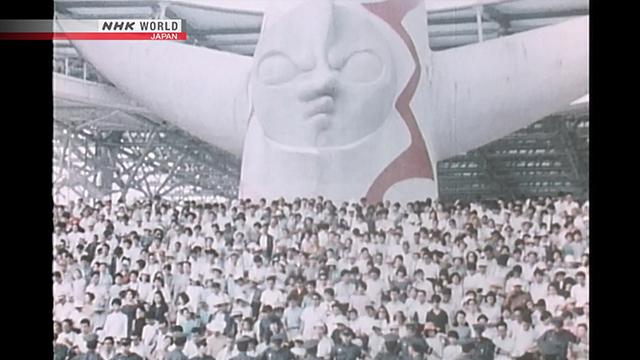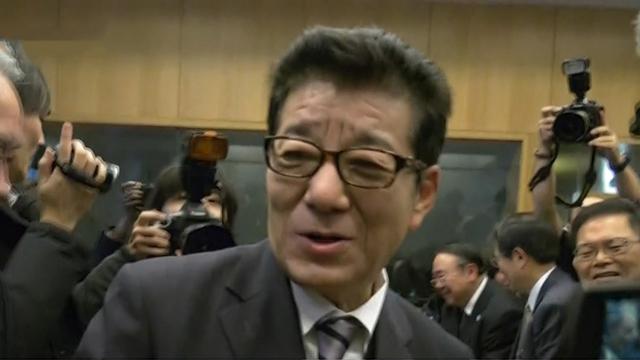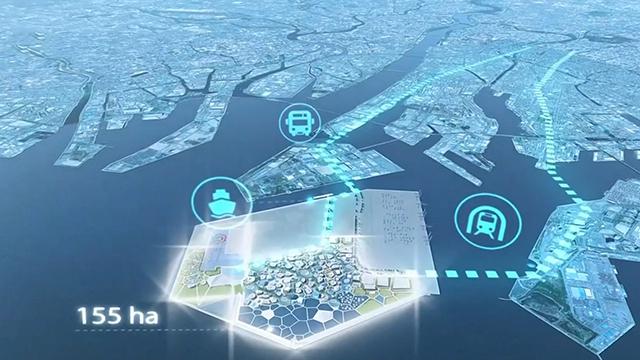Osaka gets into the spirit
On November 24, people in Osaka broke out in celebration at their city being selected as the host of the 2025 World Expo. Newspapers released special editions commemorating the occasion.
"I will definitely go to the event, and one day I'll tell my children about it," said one man.
"I want to go with my future girlfriend," said another.
A local printing company started making posters for the expo just hours after the announcement. One local government official says the event will "give a boost to the regional economy".
First time in 55 years
Voting for the hosting rights took place in Paris. Osaka was up against Baku, the capital of Azerbaijan, and Ekaterinburg in Russia. In the end, members of the Bureau International des Expositions, or BIE, decided to go with Osaka.
In 1970, Osaka hosted Japan's first ever World Expo. The iconic monument to that event, the Tower of the Sun, still remains.
At that edition of the event, attention was focused on the state-of-the-art technology on display, as it seemed to be behind the rapid economic growth Japan was experiencing at the time. But there were other notable exhibits, such as a collection of rocks from the moon brought back by Apollo 12. All in all, more than 64 million people attended the event.

Japan has hosted a number of other expos over the years. In 1985, Tsukuba in Ibaraki Prefecture held an "International Expo", focusing on science and technology. Thirteen years ago, Aichi Prefecture hosted "Expo 2005", which had a theme of "nature's wisdom".
Osaka Governor Ichiro Matsui thanked everyone who got behind the city's successful bid. He said Osaka flourished when it first hosted the event back in 1970, but languished afterwards due to Tokyo's domination. He said a boost for Osaka will benefit the whole nation.
"We want the expo to be an event that defies conventional thinking to solve the world's problems," he said. He called on support from the rest of the country.
Economy minister Hiroshige Seko said the expo gives Japan another major event to prepare for, after the 2020 Tokyo Olympics and Paralympics. He said the government will work with local authorities and businesses to organize an event that gives hope to people around the world.

What will the expo look like?
It will be held from May 3 to November 3 on the manmade island of Yume-shima in Osaka Bay. The 155-hectare venue will be divided into three sections.
The centerpiece of the expo will be the Pavilion World section. It will showcase a future where diverse cultures, lifestyles, and interests exist in harmony. Some exhibits will incorporate augmented reality technology. The section is expected to look at ways to address global issues related to health, welfare, and poverty.
The central government estimates the expo will attract about 30 million people, and bring economic benefits totaling 1.9 trillion yen, or 17 billion dollars. Some officials say the expo will help the Japanese economy continue growing after the 2020 Tokyo games.

Huge cost
But not everyone is happy. "I wonder why money should be spent on the expo," says one Osaka woman. She is not interested in the event at all.
"It will be a waste of taxpayer money," says another resident. He adds that authorities should spend the cost of the event on social welfare programs and education in the region instead.
In fact, the huge cost is posing a significant hurdle to the event. Construction costs alone are estimated at 125 billion yen, or 1.1 billion dollars. The amount will be equally divided among the central government, local authorities, and the business sector.
But people are skeptical about the calculated costs since the government has already spent more than 5 times its original estimate on the 2020 Tokyo games. 1.3 billion dollars has already ballooned to over 7 billion, and is expected to continue increasing.
The head of the bidding committee, Sadayuki Sakakibara, says the committee will consult the public and private sectors about funding measures. But beyond this, it will also need to make its case to a public that remains unconvinced about the need to host such a huge event.

